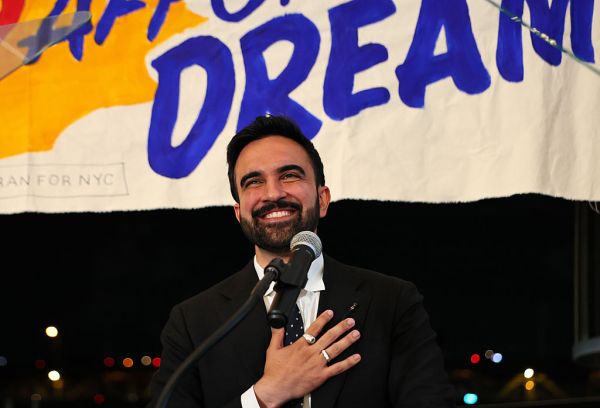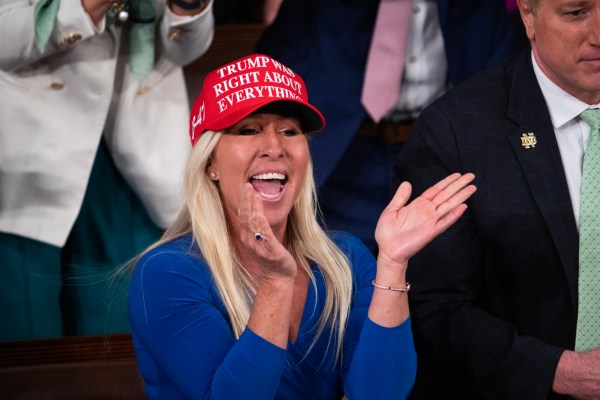While President Volodymyr Zelensky made the case for his embattled country before the United Nations and U.S. officials this week, Ukrainian forces made incremental but hard-fought gains on the front lines. But divisions within Washington and among NATO allies threaten to derail Kyiv’s ultimate goal: ridding all Ukrainian territory of its Russian occupiers.
“While Russia is pushing the world to the final war, Ukraine is doing everything to ensure that after Russian aggression no one in the world will dare to attack any nation,” Zelensky said from New York on Tuesday. “Weaponization must be restrained. War crimes must be punished. Deported people must come back home. And the occupier must return to their own land.”
Yet, nearly 20 months after President Vladimir Putin launched the invasion, international support for Ukraine’s defensive war effort is on shaky ground. Within the United States, the Biden administration’s fear of escalation and growing Republican scrutiny of U.S. support to Ukraine threaten to derail its efforts to recapture occupied territories. Among Ukraine’s NATO backers, divisions remain over how much and what kind of military aid to give Kyiv. Zelensky hopes this trip—and little victories in his country’s continued counteroffensive campaign—can change that.
Despite a slow start, Ukrainian forces trying to push out Russian troops have made a number of small but significant achievements in recent months. At several points along the southern frontline, Ukraine has breached the first line of Russian defenses as part of a likely push toward the southern city of Melitopol, and, eventually, the Sea of Azov to cut off the land bridge between Russia and occupied Crimea. The Ukrainian military has also made recent incremental gains near the city of Bakhmut in the Donetsk region—where Russian forces suffer artillery shortages and deteriorating troop morale—and repelled a Russian offensive operation near the eastern city Kupyansk.
But in the months Ukraine spent preparing for its counteroffensive, the Russians did the same. Along the southern and eastern front lines, Russian forces laid heavy minefields and built bunkers and barriers to protect their positions. Ukraine faces an uphill battle in driving Russian forces out of its territory, but it plans to do just that with what it hopes will be the continued backing of the United States and its NATO allies.
“For the second year in a row, this gathering dedicated to peaceful resolution of conflicts is darkened by the shadow of war—an illegal war of conquest, brought without provocation by Russia against its neighbor, Ukraine,” President Joe Biden said in a speech before the U.N. General Assembly on Tuesday. “If we allow Ukraine to be carved up, is the independence of any nation secure? I’d respectfully suggest the answer is no.”
But whether Washington will give Ukraine the arms to retake the captured land remains to be seen. Ahead of Zelensky’s White House visit, Ukrainian officials were hopeful that the Biden administration would use the occasion to announce plans to supply Kyiv with long-requested Army Tactical Missile Systems (ATACMS), American long-range missiles, as part of the $325 million military aid package unveiled today. The announcement never came—and U.S. officials have reportedly said not to expect the weapons transfer “anytime soon.”
“A lot of members of Congress and senators support this idea, from both parties. I hope that the administration of President Biden hears this,” Oleksandr Musiyenko, a military expert and head of the Kyiv-based Centre for Military and Legal Studies, says of Ukraine’s request for ATACMS. “Ukrainians are already using cruise missiles like the Storm Shadow, SCALP from Britain and France,” he adds, pointing to a recent Ukrainian attack on Russia’s Black Sea Fleet headquarters in Crimea using a British-supplied Storm Shadow.
It’s not the only realm in which Washington’s NATO allies are topping its own support for Ukraine. Despite recent attacks by Republicans on what they claim are weak European contributions, the continent has kept pace with and in some cases even exceeded U.S. wartime commitments to Ukraine.
At least 15 European countries have pledged a larger percentage of their GDP to supporting Ukraine than the United States, according to a tracker by the Kiel Institute. Leading the pack are Norway, Lithuania, and Estonia, but even Germany—which has been criticized in the past for its lukewarm backing of Ukraine—is ahead of the United States in its total commitments by GDP to the embattled country. Those contributions add up, despite the European bloc’s smaller economic output overall. As of late May (the latest for which data was available), Europe had pledged some $72.4 billion—nearly equaling the $74 billion the U.S. pledged—in direct humanitarian, financial, and military aid to Ukraine.
But one of Ukraine’s strongest European partners may be walking away from the United Nations gathering less enamored with Kyiv than before. After Poland—joined by Hungary and Slovakia—moved to ban Ukrainian grain from being sold at home to boost its own farmers, Zelensky accused “some friends in Europe” of furthering Russia’s agenda. The message wasn’t well received. Polish officials indicated Wednesday that Warsaw won’t send new weapons to the besieged country.
Ukrainian media later reported that the two countries’ agriculture ministries had begun to hammer out their differences before such a threat came to pass. Nevertheless, maintaining the appearance of transatlantic unity in support of Ukraine is a priority for Biden as Zelensky departs Washington.
“The people of Ukraine have shown enormous bravery—enormous bravery—have inspired the world—literally inspired the world with their determination to defend these principles.” Biden said from the White House Thursday, joined by Zelensky. “And together with our partners and allies, the American people are determined to see to it that we do all we can to ensure the world stands with you, and that is our overwhelming objective right now.”







Please note that we at The Dispatch hold ourselves, our work, and our commenters to a higher standard than other places on the internet. We welcome comments that foster genuine debate or discussion—including comments critical of us or our work—but responses that include ad hominem attacks on fellow Dispatch members or are intended to stoke fear and anger may be moderated.
With your membership, you only have the ability to comment on The Morning Dispatch articles. Consider upgrading to join the conversation everywhere.